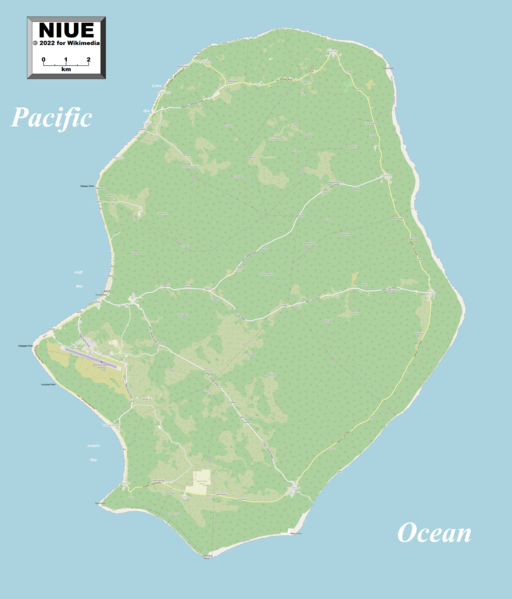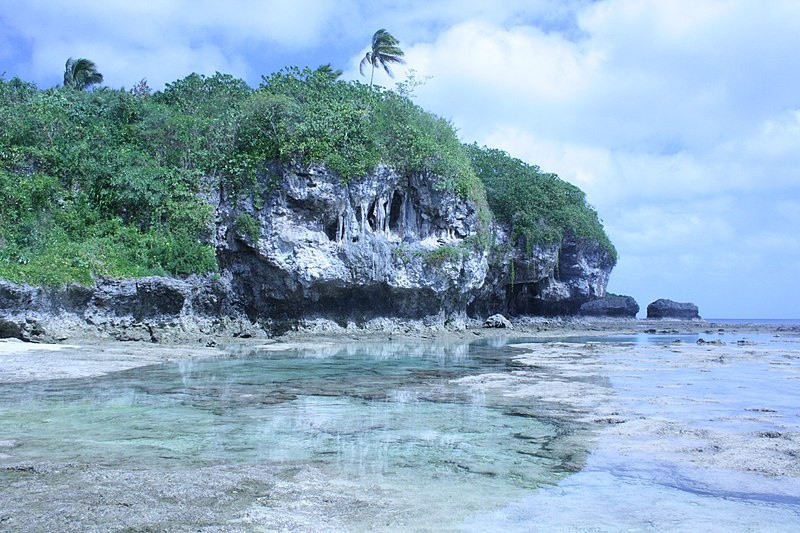Niue, a Pacific island nation, has stated that it will safeguard all of the water inside its exclusive economic zone (EEZ), which covers 317,500 square kilometers (122,000 square miles), nearly the size of Vietnam.

Protecting Marine Biodiversity

The katuali, a sea snake that lives in the island's honeycomb of underwater caverns, can only be found in the ocean that surrounds one of the world's biggest elevated coral atolls. Humpback whales migrate from Antarctica to Niue to give birth, spinner dolphins swim close to the shore, and Niue has the largest population of grey reef sharks globally.
Despite this, the reefs of this remote Pacific island, 370 miles (600 kilometers) from its nearest neighbor Tonga, are threatened. Illegal fishing is a big problem in the Pacific Ocean, and Niue is also feeling the effects of the global warming catastrophe, with coral bleaching and harsh weather wreaking havoc on the ecosystem and infrastructure.
"Due to frequent high and heavy waves, the sand from several coves has been swept away. Our coral is still recuperating after Cyclone Heta hit Niue in 2004," stated Dalton Tagelagi, Niue's premier.
Niue, a self-governing island nation in free association with New Zealand, stated in 2020 that 40 percent of its ocean would be protected. It follows the Cook Islands' lead in pledging complete protection. The Niue Nukutuluea multiple-use marine park was established due to the new policy, which took effect in April.
The pristine Beveridge Reef, an uninhabited atoll 120 miles from the island where fishing is prohibited, and only scientific studies are permitted; a three-mile zone for traditional canoe fishing, sport fishing, and scuba diving; a general ocean zone for foreign commercial fishing; and a conservation zone where vessels may pass through but not stop.
Those found fishing illegally in Niue's marine park face having their vessel and catch seized and a fine of up to NZ$500,000 (£255,000). The government can prosecute under the 2013 Maritime Zones Act or the 1996 Territorial Sea and Economic Zones Act if it considers the offense should be punished more severely. "Depending on the nature of the offense, we can impose even harsher sanctions," said Brendon Pasisi, Niue's director of agriculture, forestry, and fisheries.
Also Read : Climate Change Affects Ocean Composition, Making it Harder for Marine Creatures to Communicate
Fishing Monitoring
Global Fishing Watch, a satellite surveillance business, assists the islanders in monitoring the marine park. Because Niue lacks a navy, its 1,700 residents rely on neighboring countries to patrol its waterways. Neighbors Tonga, Samoa, and the Cook Islands carry out annual monitoring activities. At the same time, the New Zealand air force flies over the protected zone twice a year to check for evidence of illegal fishing.
However, according to Alanna Matamaru Smith, a marine scientist stationed in the Cook Islands, enforcing the newly protected areas will be a huge problem for the small nation.
Some individuals doubt how much marine reserves can accomplish, especially in light of major challenges like global warming, ocean acidification, and increasing sea levels.
Despite agreements from more than 50 nations to safeguard 30% of the world's ocean by 2030, just around 6% of the ocean is protected, and only about 2% is in highly protected "no-take" zones. According to the International Union for Conservation of Nature, most nations lack the resources needed to monitor and preserve the reserves adequately.
Intensive Efforts
Smaller, lower-income countries may also find it harder to commit to broad-based protection. Palau stated in 2020 that 80 percent of its EEZ would be protected. Meanwhile, Palau is considering reopening 50% of its protected zone to commercial fishing to improve its economy after tourists plummeted during the epidemic.
Tagelagi recognizes that converting Niue's whole ocean into a protected reserve is a lofty goal, but he insists that there is no other choice.
When the epidemic halted tourism on the island, Barclay's team organized diving dives for schoolchildren and boat trips for younger children. The objective is for young, qualified divers to assist with the replanting of coral on the reef. Still, it is also anticipated that these expeditions would encourage them to pursue a career in ocean conservation.
For more Environmental News, don't forget to follow Nature World News!
© 2025 NatureWorldNews.com All rights reserved. Do not reproduce without permission.





